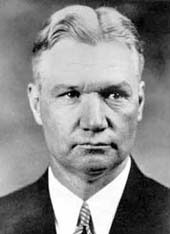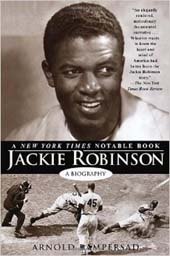Robert E. Lee Moore -- Topologist and Racist

It's a statement when someone names their child after Robert E. Lee, a man who did his best to destroy the United States in order to preserve slavery. Robert E. Lee was lionized more in death than in life, a paragon of the Lost Cause, the glorious if doomed rebellion of a brave people who wanted nothing but to be left alone, crushed by the soulless and brutal industrial juggernaut (Sherman's march to the Sea!). It's the big lie, forwarded for 150 years to defend the indefensible. What a wretched history of oppression, assiduously rebuilt over the generations by people like Moore, Sr. and his illustrious and vicious son Robert E. Lee Moore. The Compromise of 1877, peonage, disenfranchisement, lynching, Plessy v. Ferguson, Jim Crow, the Dunning school false flag on reconstruction. Read the old classics by W. E. B. Du Bois, Eric Foner, and C. Vann Woodward (himself a son of the south), among others, if you still doubt the long-standing construction and reconstruction of anti-black racism in this country down through the generations since 1865.
The ineffable tragedy is the patient re-enslavement of emancipated slaves over the years. Andrew Johnson wanted to re-enslave them in a matter of months, but was thwarted by the Republican "radicals" who insisted on black empowerment, enforced by U. S. troops when necessary against organized white violence. President Grant did what he could to support reconstruction, but the federal government pulled out in 1877, when President Hayes was inaugurated as a Republican in exchange for removing U. S. troops from the south. Reconstruction was overthrown, quickly and violently in some states, like Mississippi where an armed coup of ex-Confederate soldiers deposed the elected state government.
The north gave up the battle, but the south didn't, devising and instituting separate but equal, a fraud to simulate the appearance of fairness, known as such by its practitioners, accepted as equitable by the unknowing, ignored by most as they abandoned their black fellow citizens. The cultural front was never abandoned, the forces of malice understanding better than everyone else the necessity of constant denigration of black people, lest sympathy start to get a foothold. And I haven't been fair to the south either, because there have always been people of good will there, ready to take risks and be loyal allies however possible in an environment hostile and violent to white allies as well as black people.
Robert E. Lee Moore's father was the opposite of that, a man born and raised in New England who chose vicious racism as his belief system and moved to Texas as the civil war was brewing in order to participate in the armed insurrection to retain slavery. I repeat, he was a vicious bigot by choice, and reorganized his life to support that ideology. Unless you are unfortunate enough to have witnessed something like this close up, you have to reach into literature to grasp such moral degradation; only Dostoevsky's willful criminals like Raskolnikov, pretending to be a champion of the public good, or his mentally ill sado-masochists like the Man from Underground ("I spit on your perfect society") could understand spurning Thoreau and Emerson for Calhoun and Fitzhugh. American slavery was a pronounced form of institutional sadism — it elevated the very worst elements of society to leadership and brought out the worst of every person who came near it, just as the abolitionists of old always said. Only a deeply disturbed person would be drawn from afar to embrace such cruelty. To defiantly choose slavery! Words pale. Read 12 Years a Slave, or better yet, see the movie.
Robert E. Lee Moore lived up to his name, emulating his daddy as an active racist. Here was a man of some standing at the University of Texas who fought black people however possible from his privileged perch. Remember that the tide was starting to change in the late 1940s with the growth and increasing sophistication of the modern civil rights movement, an early victory being Brown v. Board of Education in 1954, where the U. S. Supreme Court unanimously ruled that public school segregation was unconstitutional. The racists howled — they vowed to impeach Chief Justice Earl Warren, they placed the stars and bars on their state flags, they instituted parallel all-white private schools. Just like in 1860 except without the guns, their precious racism in danger of being taken away, their most valued legacy challenged, decency and even economic development be damned.

That is what Robert E. Lee Moore chose, that was his path. He was an esteemed teacher at Texas and really throughout the United States. He helped many a student in their career, including some of my topology teachers at the University of Wisconsin in 1969. But he refused to be in the same room with black people, refused to take them as students or even allow them to attend his classes. That's pretty extreme. The old reprobate taught at Austin till he was 87 years old, in 1969. It's a small miracle there was no legal challenge considering how rapidly the law, public attitudes, and common practice were changing in this area in the 1960s. But no, he is lionized to this day like his namesake, memorialized by the imposing Robert Lee Moore Hall at Austin, shown here.
Evidently Moore is admired more as a teacher today rather than a research mathematician — The Greatest Math Teacher Ever? in Keith Devlin's phrase. Which is right up there with the smartest man or most beautiful woman of all times featured in the Sunday supplement, pretty stupid. I've been subjected to the Texas method (second generation, granted) and let me tell you, many of my old high school teachers were better. They bothered to prepare, for one thing. But there's something deeper. It verges on offensive to denominate such a stunted human being as great, it sullies the Eulers and the Pólyas, indeed the millions of fine teachers throughout the world who would't think of insulting or excluding a student, of treating one with anything less than the fullest compassion that you yourself, imperfect vessel, can summon up at that moment.
It's like in the old days when slaves were not legally allowed to read, then were called stupid for being illiterate. What a crime for a teacher to exclude a group based on race, to actively prevent an entire class of people from receiving the ideas of the great ones who preceded us, our real educators, teachers, and civilizers. Why would a teacher deny knowledge to someone seeking it? It's as if the hoarder secretly suspected the truth — that given reasonable opportunity, the excluded ones would do as well as everyone else, giving the lie to racist claptrap.
Keith Devlin opines:
When I wrote those two Devlin’s Angle posts back in 1999, I debated with myself whether to address a side to the Moore story that, particularly from a late Twentieth Century perspective, does not stand to his credit. The issue is race.
Moore’s racial attitude was nothing unusual for a white person who was born and lived most of his life in Texas in the late Nineteenth Century and the first three quarters of the Twentieth. When the Civil Rights Act was passed in 1964 (yes, that recently!), making racial discrimination illegal, Moore was already long past retiring age, and just five years short of actually vacating his university office. Moreover, no one who regularly reads a newspaper would believe that racial discrimination in America is a thing of the past. Moore’s racial views are still not unusual in Texas and elsewhere.
First off, that's a slander on the people of Texas, who had and have their share of racists to be sure, but also many others who were anything but. My teachers at Jesuit High in Dallas circa 1963 are one example. Lyndon Johnson is another, without whom the Civil Rights Act of 1964 almost certainly would not have been passed. He was constrained by his constituents' and indeed by his own racism, but rose to the occasion as if he'd been waiting a lifetime to extirpate the old original sin in this country once and for all. So saying racism was in the air and people like Moore were passive receptacles is false and insulting to the many good people who always hated racism, including their own. Always! In 1960, in 1910, in 1860, in 1830.

The immortal Jackie Robinson encountered people like Moore and people like Devlin too, the aggressors and the enablers — see Arnold Rampersad's excellent biography, or the movie based on it for that matter. The aggressors would use every tool at their disposal to thwart black people — vociferous complaint, economic pressure, official or semi-official power, collusion with corrupt police, mob action, social blackmail, violence of course hovering constantly in the background if all else failed. The enablers would say, "Well this is important to Bob, his daddy served in the Confederacy, you know", then yield, look the other way. There were always people who wouldn't put up with it; evidently Bing refused to return to Texas as long as Moore was in the department, and Ioan James says others refused to come. It reflects poorly on the discipline that it never produced a Jeremiah like Branch Rickey, thundering against wickedness and effectively using every ounce of his power to crush it within his beloved baseball. There was no one remotely close to that in mathematics, a sad fact reflected in the pale remarks of Keith Devlin in 2015. That's right, in this area American mathematics is morally inferior to professional baseball, which started to take decisive steps in the face of massive racist resistance in 1945.
Robert E. Lee Moore did not lead millions, and in the end his influence on race relations in this country was limited and confined to the ethereal regions of research mathematics. He was a penny-ante bully with a big mouth who did what he could to promote racism within his ambit. There were and are millions like him, that's the problem. And there are many others like Keith Devlin, always ready to explain away, to overlook, to minimize. Moore was a powerful man in the world of mathematics and people feared him. They still do, what a disgrace.
Mike Bertrand
July 28, 2015
Update (8/9/2015): Dr. Scott Williams of SUNY / Buffalo cites many examples of Moore's racism and names names in his page R. L. Moore — racist mathematician unveiled. Dr. Williams is a topologist and knows whereof he speaks, citing incidents involving him personally as well as others. The page was first published in 1999, so there is no excuse for apologists to be fawning over this bigot sixteen years later.